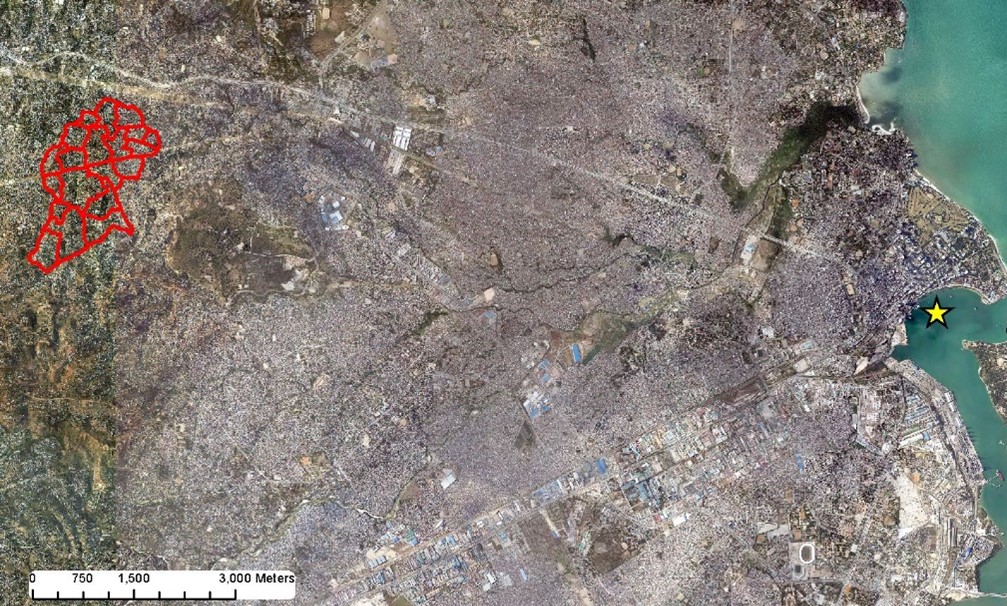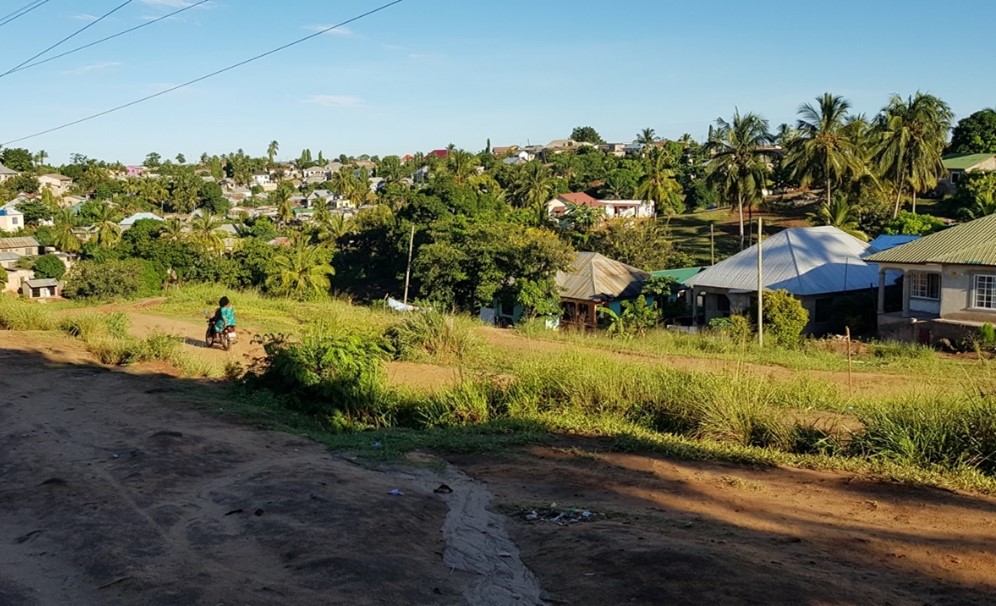Unbundling tenure security and demand for property rights: Evidence from urban Tanzania
- Created
- 10 Apr 2024, 2:06 p.m.
- Author
- Martina Manara and Tanner Regan
Many developing countries invest in programmes of land registration where plots of land are planned, demarcated with physical markers (survey beacons), and issued land titles. The imperative for such programmes arises from the informal and unplanned nature of some urban settlements together with the complexity of property right ‘bundles’ that encompass a range of rights including the concept of ownership or legal occupancy, safety from eviction and transfer rights, to name a few. It is within this context that state recognition is thought to provide benefits of tenure security to households that occupy land informally. It may also accrue further public benefits, such as easier or more efficient revenue collection and greater transparency in land markets.
However, demand for land titles remains low in many geographical contexts, raising questions on how informal landowners value the acquisition of such formal documents. Indeed, prior research has argued that the benefits of land titles are ambiguous and alternative policy approaches may be cheaper and better suited to address local needs of tenure security.
In this newly published article our research provides unique evidence on how landholders value land titles in the context of Dar es Salaam, Tanzania. From 2016, the state coordinated the early stages of planning and surveying in multiple pilot cities across the country. Informal landholders received invoices to pay titling fees for a private title deed, the payment of which would then legitimise their right of occupancy, provide access to formal land and credit markets, and further potential benefits from revenue collection.
We studied the pilot programme of Dar es Salaam, occurring in the Kimara Ward, 12 kilometers from the city center (Figure 1). Three years into the programme, we found that only 13% of the 1,482 invoiced landholders had paid their titling fees. This phenomenon was common to other pilot projects and subsequent community-led regularisation initiatives that emerged in Dar es Salaam.

Figure 1: The study area in Dar es Salaam
To understand how landholders value this land title, we adopted an innovative combination of mixed-methods, comprising a willingness-to-pay elicitation exercise, a survey and in-depth interviews. Our questionnaires explicitly unbundle property rights into multiple dimensions of tenure security, including protection of ownership rights from government eviction, third-party disputes (e.g. neighbours’ encroachment), inheritance disputes, and further functions of land titles, such as to sell or collateralise land. This approach enables us to understand – both qualitatively and quantitatively – how respondents compare formal and informal tenure vis-à-vis each dimension of the property bundle.
Three functions of tenure security have the largest impact on demand for title deeds. A third of respondents expect that the main benefit of regularisation is protection from government expropriation (34%), followed by protection from third party (30%) and protection of inheritance rights (16%). A staggering 42.5% experienced third-party disputes, while 24% anticipate that their heirs may incur future inheritance disputes, underscoring distinctive weaknesses of the informal tenure system. Landholders also expect further benefits from land title acquisition, such as capacity to access credit, but these were less valuable to them.
 Figure 2: Landscape in the Kimara Ward
Figure 2: Landscape in the Kimara Ward
“The city will come to us, so we took the regularisation process with both hands” (T.)
Despite the expected gains of tenure security, landholders consider the up-front price of land titles too high for benefits that will mostly accrue in the distant future, particularly inheritance and compensation rights. Over 40% of our respondents are willing to pay about 200,000 TSh or 85 US$, the typical household monthly income in our sample. However, this is less than half the median invoice price of 538,000 TSh or 230 US$. As J. asked: “you commit to pay a lot of money, but what immediate benefit are you going to get?”. A mismatch in the timing of benefits and costs of land titling causes many landowners to often delay or postpone the acquisition of title deeds.

Figure 3: Willingness-to-pay elicited demand for land titles
Even if they do not perceive imminent threats of state eviction, our respondents value land titles to secure entitlements to public infrastructure and state compensation in case of eviction. With a land title “you can sit down and discuss”, said J. Furthermore, respondents value regularisation to solidify social relations with neighbours: “there cannot be another benefit if you don’t live well with your neighbours” (O.). However, many think that the risk of boundary conflict is already “all over”, due to the posing of permanent physical markers (survey beacons) that are “trusted and respected”. This means that land titles are no longer essential to protect land from third-party conflict. Finally, both male and female landholders worry about securing inheritance rights for their female heirs. Recounting episodes of widows and daughters “robbed of” their inheritance rights, they reflect that a title deed could substantially strengthen this dimension of the property bundle. However, this is also a benefit that they expect to accrue in the distant future.
“It is better to make it very clear about what you are leaving behind before you go, especially land" (A.)
 Figure 4: Picture from an interview
Figure 4: Picture from an interview
Adequate pricing policies are needed where landholders value land titles but are unable or unwilling to pay large upfront fees, for example by amortising costs through instalments. Furthermore, strengthening tenure security as a bundle requires diversified policy approaches. In this case-study, the physical demarcation of boundaries sufficed to reduce perceived risks of boundary conflicts. Thus, policymakers should not consider land titles as panacea to improve all dimensions of tenure security. As informal tenure systems differ substantially within and across cities, we suggest unbundling property rights to gain nuanced understandings of the sources of tenure (in)security in diverse contexts and design ad-hoc policies that address local needs.
Read the full open access paper on Urban Studies OnlineFirst here.


Comments
You need to be logged in to make a comment. Please Login or Register
There are no comments on this resource.